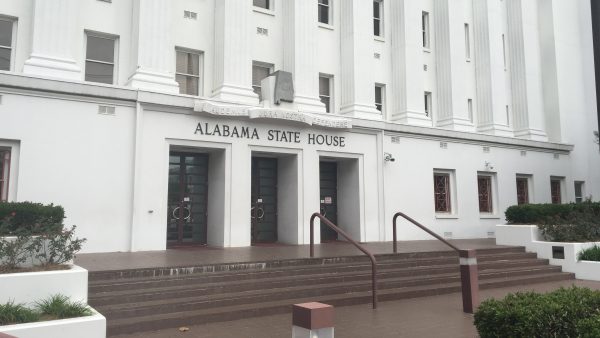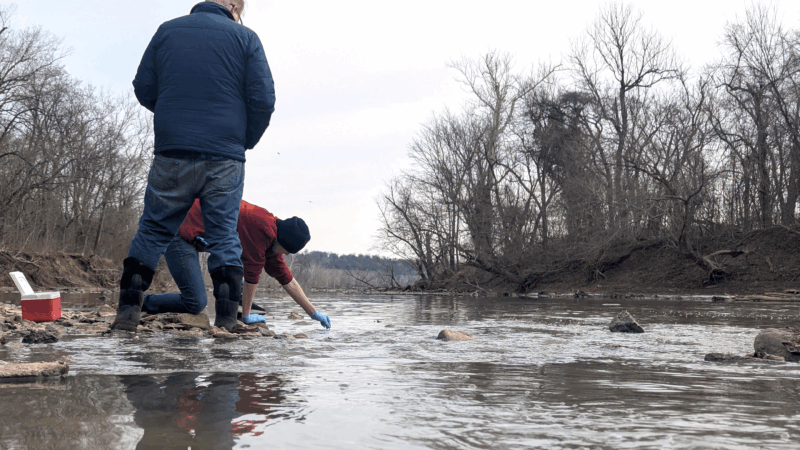Trump Plan Would Open Most US Waters to Drilling, Including Gulf
The Trump administration on Thursday announced a proposal to significantly expand offshore oil and gas drilling. The draft plan would allow new offshore drilling in more than 90 percent of U.S. waters, including the Gulf of Mexico. The administration would also offer a record number of leases to energy firms.
The proposal would allow new drilling and exploration in the Gulf, and off Alaska and the east and west coasts. It would offer 47 leases from 2019 to 2024. U.S. Secretary of the Interior Ryan Zinke says Obama-era restrictions are costing the nation billions of dollars in needed revenue.
“This is the largest number of lease sales ever proposed,” he says. “The Obama Administration had 11 lease sales, so this is a clear difference between energy weakness and energy dominance.”
The draft proposal includes 12 lease sales in the Gulf, where there’s already oil and gas infrastructure. It would be the first time since the 1980s that most of the eastern Gulf would be open for drilling. In places where no wells or other infrastructure exist, extraction would be years if not decades away.
Finalizing the plan could take a year and a half. Environmental groups and some state governors are likely to challenge it in court. Thursday’s announcement did not mention climate change or the Gulf oil spill of 2010.
Below are excerpts from Secretary Zinke’s Thursday press conference.
Claiming More Contrast
“[Under Obama], responsible energy development took a backseat to special interest groups. If you look at the previous administration, it took offline 94 percent of the Outer Continental Shelf and made it off limits for energy exploration, development, and seismic [study]. So we lost $15 billion of revenue a year. Today it’s a lot different. We are standing as the leading oil and gas producer. It is likely we’re going to be a major exporter of liquid natural gas.”
Drilling Benefits to National Parks
“On scale, a loss of $15 billion a year would have addressed the entirety of the backlog of our national parks and given us money to reinvest in our national public lands where we need it. And certainly those that have been out and looked at our parks, they are being loved to death.”
The U.S. is Better
“It is better for the environment to produce energy here under reasonable regulation. Nobody is better at producing clean, quality, responsible energy than the United States. If you want to take a look at some of our allies in Africa and the Middle East — and certainly as a former Navy SEAL commander I’ve spent a lot of time in the Middle East — I can tell you how not to produce energy, and you’ll find that in parts of Africa and the Middle East.”
The economy slowed in the last 3 months of the year — but was still solid in 2025
The U.S. economy grew 2.2% in 2025, a modest slowdown from 2.4% the previous year. GDP gains were fueled by solid consumer spending and business investment.
Ali Akbar, who’s sold newspapers on the streets of Paris for 50 years, is now a knight
For decades, Ali Akbar has sold papers on the Left Bank of Paris. Last month, France gave the beloved 73-year-old immigrant from Pakistan one of its highest honors — and his neighborhood is cheering.
Bill limiting environmental regulations goes to the governor’s desk
President Trump has taken steps to roll back environmental regulations. Some of that same action is taking place in statehouses, including Alabama's. Lawmakers gave final passage this week to a bill that would ban the state from enacting environmental rules more stringent than those at the federal level. That's where we start our weekly legislative update with Todd Stacy, host of Capitol Journal on Alabama Public Television.
For years the Taliban told women to cover up in public. Now they’re cracking down
At hospitals, at seminaries and on buses, the Taliban is stepping up enforcement of rules on women's dress in the city of Herat.
What I learned watching every sport at the Winter Olympics
Sit down with pop culture critic Linda Holmes as she watches the 2026 Winter Games. She is exhausted by cross-country, says "ow ow ow" during moguls, and makes the case, once and for all, for curling.
Scientists worry about lasting damage from Potomac sewage spill
Drinking water around the District of Columbia hasn't been contaminated. But scientists say the environmental damage could be severe.






